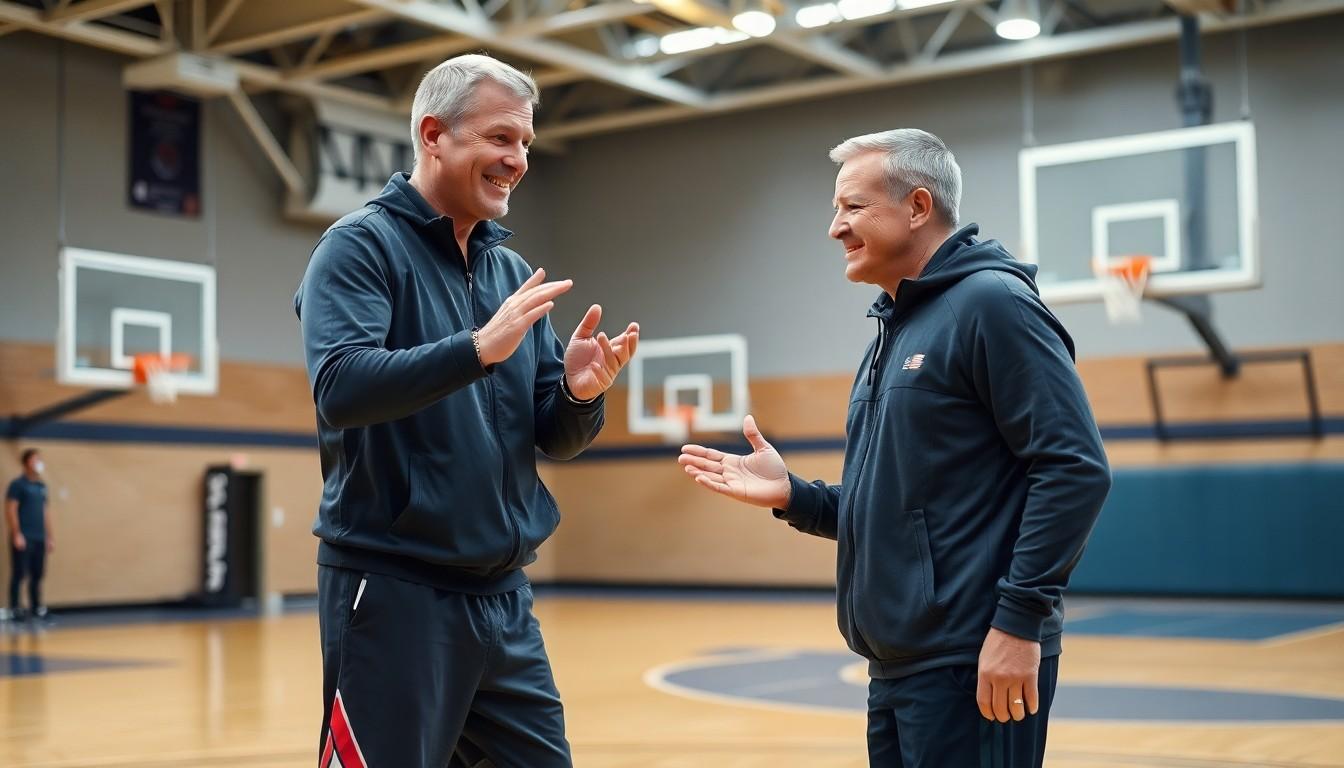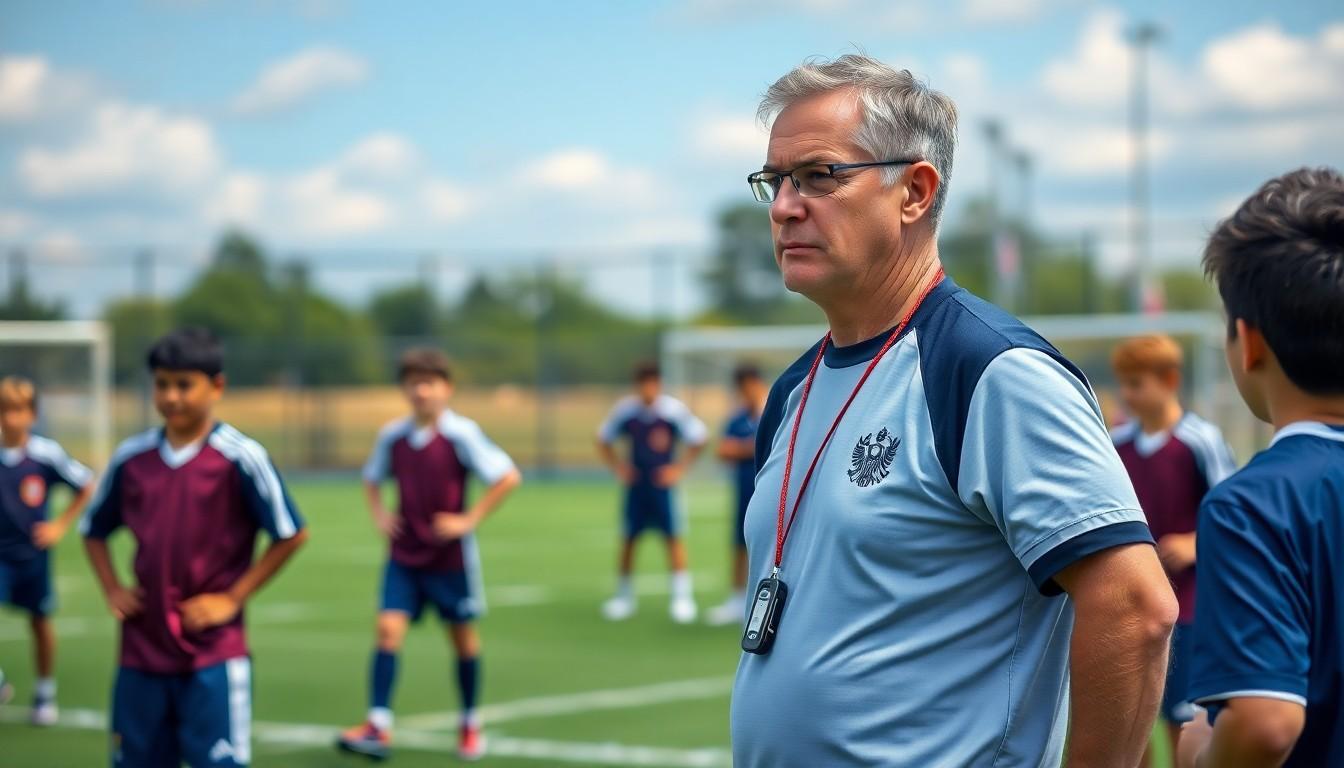Phone:
(701)814-6992
Physical address:
6296 Donnelly Plaza
Ratkeville, Bahamas.

In the world of sports, talent is just the tip of the iceberg. Underneath lies the magic of a player development coach, the secret sauce that transforms raw potential into superstar performance. These coaches are like the fairy godmothers of the athletic realm, waving their wands to turn hopefuls into champions. But instead of wands, they wield strategies, mentorship, and a hefty dose of tough love.
A player development coach focuses on enhancing athletes’ skills, mental toughness, and overall performance. This coach plays a vital role in bridging the gap between a player’s raw talent and their full potential. They design tailored training programs to address individual needs, ensuring each athlete develops both technically and psychologically.
Specific areas of focus include skill refinement, game strategies, and personal growth. Player development coaches cultivate a supportive environment that encourages open communication and feedback. They often analyze players’ performance data to identify strengths and weaknesses, providing actionable insights for improvement.
Moreover, these coaches often act as mentors. They guide athletes through challenges, helping them navigate both on-field and off-field issues. Establishing trust and rapport with players fosters a positive coach-athlete relationship, which significantly contributes to an athlete’s motivation and commitment.
Team dynamics also come into play with player development coaches. They work closely with other coaching staff to ensure consistent messaging and strategies across training sessions. Collaboration among coaches reinforces a unified approach, essential for fostering a successful athletic program.
In essence, a player development coach is instrumental for athletes aiming for sustained growth and success in their sport. With a focus on individual development, these coaches empower athletes to reach their highest potential on and off the field.

Player development coaches play a pivotal role in enhancing athletes’ skills and mindset. They focus on creating pathways for improvement and overcoming challenges.
Skill assessment forms the foundation of a player development coach’s work. Coaches analyze athletes’ strengths and weaknesses through comprehensive evaluations. They frequently utilize performance metrics, video analysis, and live observations to gain insights. Conducting regular assessments allows them to track progress systematically. Coaches then use this information to inform training strategies and objectives. By providing immediate feedback, they create opportunities for athletes to grow. Such evaluations foster a culture of continuous improvement and accountability.
Creating individualized training programs represents a crucial responsibility of player development coaches. They tailor each program to meet the unique needs of each athlete. This customization focuses on specific skill sets, physical conditioning, and mental resilience. Coaches prioritize flexibility in their training methods to ensure adaptability. By incorporating diverse drills, strategies, and techniques, they maintain engagement and motivation. Regular evaluations of these programs lead to necessary adjustments based on athlete progress and performance goals. Ultimately, such personalized approaches empower athletes to maximize their potential effectively.
Player development coaches play a vital role in elevating athletes’ capabilities. Through targeted strategies and mentorship, they transform potential into peak performance.
Player development coaches enhance athletic performance through personalized training programs. Comprehensive assessments identify each athlete’s strengths and weaknesses, guiding tailored development plans. Regular evaluations utilize performance metrics and video analysis to provide precise feedback. Coaches emphasize skill refinement, tactical understanding, and physical conditioning in their training methods. These approaches foster continuous improvement, as athletes engage in drills that target specific skill sets. Adjustments based on progress maintain motivation and align training with performance goals.
Fostering mental resilience stands as a crucial element in player development. Coaches equip athletes with coping strategies for high-pressure situations, enhancing their psychological toughness. They create an environment that encourages open dialogue, allowing athletes to express concerns and seek guidance. By instilling confidence, coaches enable athletes to tackle challenges head-on. Consistent support builds trust and rapport, essential for motivating players over time. Additionally, coaches help athletes set realistic goals, promoting a growth mindset that enhances overall performance. This combination of mental strength and clarity prepares athletes for both competition and life challenges.
Player development coaches typically possess a solid educational foundation in sports science, kinesiology, or a related field. Many hold bachelor’s degrees that provide essential knowledge about human physiology and training methodologies. Advanced degrees, such as a master’s in sports psychology or coaching, enhance their understanding of athlete mental conditioning.
Experience in competitive sports plays a pivotal role in shaping these coaches. Individuals often have backgrounds as former athletes themselves, where they gained firsthand insight into training demands and competitive pressures. Professional experience as players helps coaches relate to the challenges athletes face, fostering trust and rapport.
Certifications from reputable organizations are common among player development coaches. Various programs, such as those offered by the National Association of Sports Coaches or the United States Sports Academy, provide training in coaching practices and athlete development principles. Completion of these certifications showcases commitment to professional growth and expertise in the field.
Continued education remains vital for success. Staying current with the latest coaching techniques and sports science advancements allows coaches to refine their strategies. They might attend workshops or seminars, demonstrating a dedication to enhancing their skill set and providing the best possible support for athletes.
Networking with other professionals also contributes to a coach’s qualifications. Participation in coaching associations and sports clinics fosters relationships that lead to knowledge sharing. Collaboration with peers equips coaches to adopt innovative approaches, ultimately benefiting their athletes’ development.
Fostering an environment that emphasizes learning and improvement reflects the values instilled by player development coaches. Prioritizing education and experience ensures these coaches effectively guide athletes on their journey to success.
Player development coaches play an essential role in shaping the future of athletes. Their unique blend of mentorship and expertise transforms raw talent into refined skill and mental resilience. By focusing on individual needs and fostering a supportive environment, these coaches empower athletes to reach their full potential.
With a commitment to continuous learning and adaptation, player development coaches remain at the forefront of athletic training. Their ability to analyze performance and provide actionable insights ensures that athletes are not just prepared for competition but also equipped for life’s challenges. The impact of a dedicated player development coach extends far beyond the field, nurturing champions both in sport and in life.